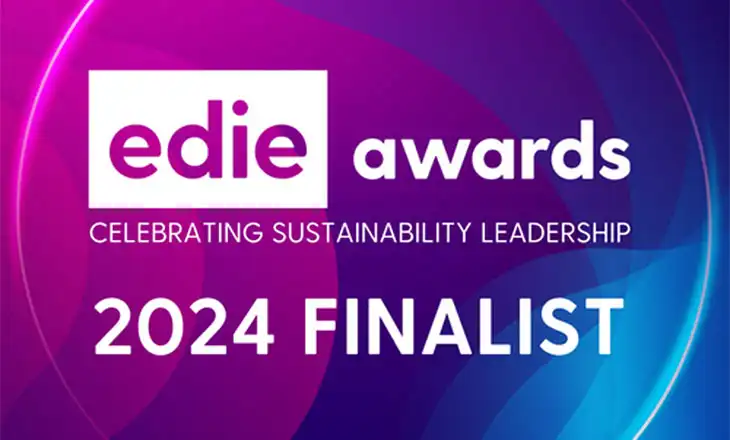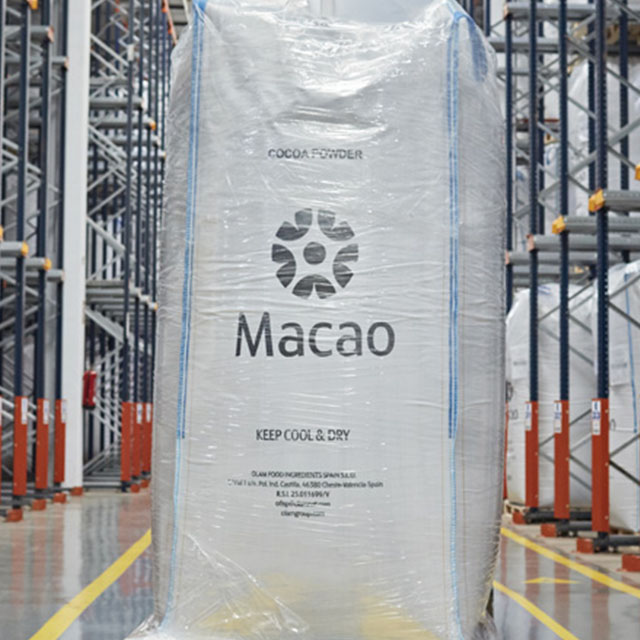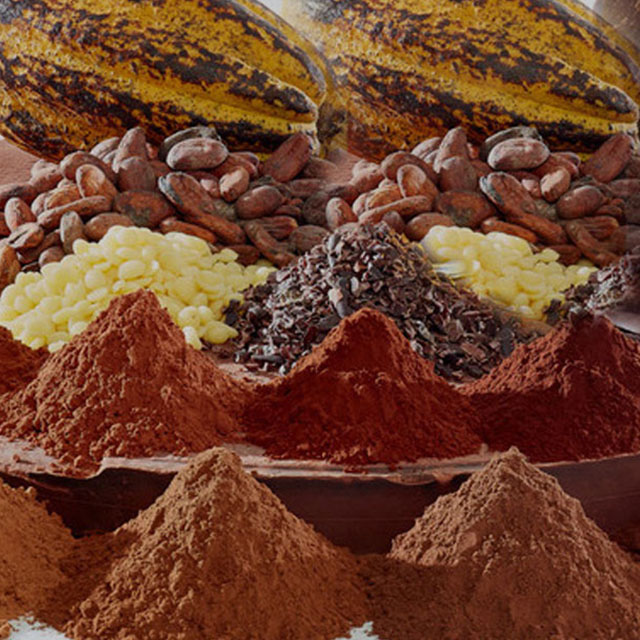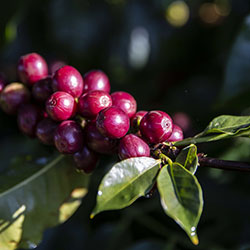Spain is the world’s second largest importer of cocoa solids and a large cocoa processing country with a rich chocolate tradition. ofi was established in Spain in 2011 in Valencia and increased the cocoa powder proposition through the acquisition of Macao, a well-recognised brand with a strong market share.
Our management team has over 30 years’ experience in cocoa and maintains strong relationships with Spanish chocolate and confectionery manufacturers, snack companies and powder users. We have created a marketing and manufacturing centre of excellence for cocoa powder and are a leading supplier to the chocolate beverage and biscuit industries in the Iberian and North African markets. The Macao brand is sold in 36 countries globally with a strong growing presence in Middle East and Russian regions.
Macao adds value to cocoa cakes coming mainly from the Ivory Coast, completing the supply chain model. The Valencia plant leads the way with excellent Food Safety Quality Assurance processes.
In December 2012, we acquired SEDA Soluble Coffee, a brand which has been associated with the production of private label and bulk coffee since 1957. A new, accomplished management team were implemented into the business.
SEDA Outspan Iberia SLU has 3 locations. A manufacturing plant in Palencia; the centre in Villamuriel manages packing and logistics; whilst the office in Madrid supports the commercial activities.
At our plant in Palencia we process soluble coffee and mixes of coffee with chicory or cereals, pure instant chicory and mixes of cereals without coffee.
We operate robust quality audit systems and maintain third-party certifications. The coffee operations in Spain primarily service the European market, whilst the plant in Vietnam supports Asia.
Through SEDA we offer private label solutions to coffee customers across Europe with a range of different packaging types.
Read ofi news
A new carbon monitoring tool developed by leading food ingredients supplier ofi and Google geo-spatial partner NGIS, has been recognized in the “Net-Zero Innovation of the Year” category at this year’s Edie awards, which celebrate sustainability leadership.
The tool is designed to measure carbon gains and losses across supply chains. It uses satellite imagery and machine learning to track changes in forest cover and carbon stocks at a granular level - down to the individual farm1. This data is helping ofi to identify areas at risk of deforestation and prioritize conservation efforts on cashew, cocoa and coffee suppliers’ farms and in sourcing landscapes.
Climate Action Manager at ofi, Dr Pedro Lafargue said: “We are delighted to be recognized for our innovative solution that is helping us monitor and measure GHG emissions and progress towards net-zero goals. Part of this is about driving transformational change in strategic landscapes which means keeping growing and retaining more trees on and around farms.
“Planting more trees is one of the ways to move towards net-zero, but carbon sequestration potential is highly dependent on tree species and farm typology. The tool allows us to assess the optimum level of planting for different farmers and farms so we can create more efficient agroforestry programs that maximize both yields and carbon storage.”
ofi’s customers, who are some of the world’s largest food retailers and manufacturers, can access results of the data-driven sequestration efforts in their joint supply chains via performance metrics on ofi’s sustainability management system AtSource. These insights can help them monitor and reduce their climate risk and meet science-based targets, as well as prepare for compliance with new EU rules and disclosures in relation to nature and climate risks.
The move by ofi to take carbon stock monitoring from a manual, desktop-based process to an integrated pipeline which leverages cloud computing, is allowing ofi to progressively scale this analysis across multiple commodities and regions – covering over 950,000 farms so far.
But Lafargue says that there’s a role for industry partners to play to scale up the innovation and progress towards net-zero at scale: “While the tool can help our customers quantify the ecosystem services provided to supply their ingredients and invest efficiently in better farming systems, we need them to recognize the efforts made by farmers to plant trees and maintain agroforestry systems with financial incentives, like annual premiums, to scale up these efforts over the long-term.”
Looking ahead, there is potential to take the tool beyond ofi supply chains to quantify carbon stocks and removals across entire production landscapes to provide better data for the industry on land use change and carbon removals.
ofi was also a finalist in the Circular Economy of the Year award for using residual cocoa shells to fuel its cocoa factories2, where it produces its premium cocoa ingredients deZaan. The circular biomass boilers will reduce natural gas usage and CO2 emissions at ofi’s Koog aan deZaan facility in the Netherlands by 50% and in Mannheim, Germany, where it is believed to be the first cocoa shell boiler of its kind in the country, it will save approximately 8,000 tons of CO2 annually.
Discover much more about what ofi has to offer at ofi.com
Notes to Editors
1 The Carbon Sequestration Monitoring Tool combines data from ofi polygon-mapped farms and satellite data with machine learning techniques to build models in Google Earth Engine that calculate the total aboveground biomass (AGB) - vegetation above the soil, such as stumps, trees, and foliage and how much carbon is present in each plot.






